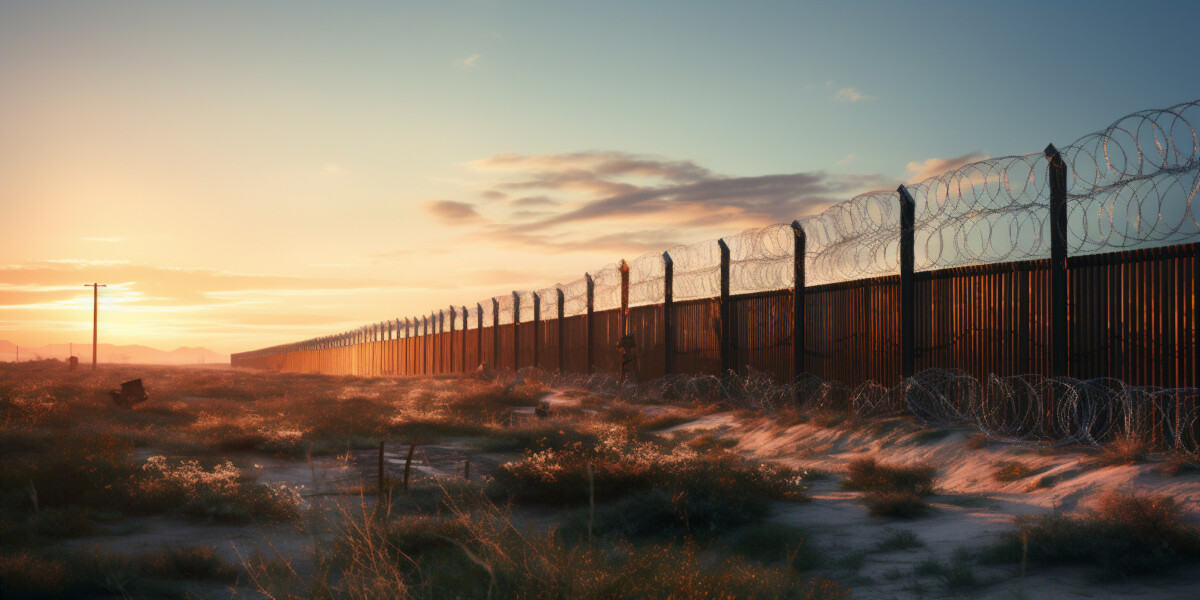Texas is one of the four U.S. border states on the front lines in the battle against illegal immigration. Its border with Mexico stretches 1,254 miles, comprising the majority of Mexico’s border with the U.S. Recent law changes have focused on immigration crackdowns along the border.
During the Biden administration, millions of individuals unlawfully crossed into the U.S. through the Texas border. In 2022, Texas was home to over 5 million immigrants, including 1.8 million unlawful immigrants. Following the Biden administration’s lax border policies, that number is likely much higher now. Regulations were so slack that concerns began to grow about the number of criminals allowed into the country along with well-intentioned people seeking new opportunities.
One of President Trump’s first acts when he took office in January 2025 was to sign executive orders ending lax border policies and empower ICE (U.S. Immigrations and Customs Enforcement) to locate and deport unlawfully present criminals. Construction of another border wall was started, and the “Remain in Mexico” policy from Trump’s first term was resurrected. This policy requires asylum seekers at the border to remain in Mexico pending their hearing in U.S. immigration court.
Texas State Executive Orders and New Bills
Governor Abbott’s Executive Order GA-46 (from 2024) orders public hospitals to collect the immigration status of patients and report how much their hospital costs were. This was originally instated under the Biden administration to seek reimbursement from the federal government for rising medical costs that Texas was absorbing, but it could potentially be used under the Trump administration to track people of unlawful immigration status.
Governor Abbott’s Executive Order GA-54 was issued in 2025, directing Texas agencies to aid in federal government immigration enforcement activities. It means that state agencies may share information with federal immigration authorities and aid in immigration enforcement.
Texas immigration law also allows local police to arrest individuals who illegally cross the border into Texas from Mexico. Senate Bill 4, approved in 2023, provides for Texas state law enforcement officials to arrest individuals who illegally cross into Texas from Mexico.
Senate Bill (SB) 8 in the Texas Senate looks to require sheriffs in counties with more than 100,000 citizens to cooperate with ICE by participating in their 287(g)program. The Federal 287(g) program delegates to local authorities the power to identify and detain unlawfully present immigrants 48 hours beyond their release date until ICE can take custody. At least 35 counties in Texas are currently voluntarily participating.
Participating Counties and Departments
The Dallas Police Department recently announced that they would not help with immigration crackdowns, and the Texas Attorney General has opened an investigation on them. In Attorney General Ken Paxton’s statement he said that “the law is not optional […] the people of Texas expect law enforcement agencies to uphold public safety, not to implement sanctuary policies that put our communities at risk.” The Dallas Police Department has clarified that while they are not actively performing immigration crackdowns, they will arrest individuals with active criminal warrants.
Similarly, Houston’s police department has confirmed that they will be focusing on local issues more than ICE priorities. However, under Senate Bill 8, these large counties and all others in Texas would be forced to participate in immigration crackdowns.
Immigration Crackdowns: ICE Raids
Meanwhile ICE have been conducting raids in various locations throughout Texas, resulting in arrests in cities like San Antonio, Dallas, Arlington, Irving, and Austin. At the moment, ICE has said they will not target places like churches, schools and hospitals unless a dangerous criminal is inside but expanded permissions do allow them to enter these places. The majority of individuals arrested so far in the ICE raids are said to be those who have been charged with or convicted of criminal activity.
Changes to Immigration Law in 2025
In addition to the newly proposed or enacted laws and executive orders, expedited removals now apply anywhere in the U.S., not just near the border. This means that an unlawful immigrant who has been in the U.S. less than two years can be detained and removed anywhere in the state, without ever appearing before a judge.
In Texas, the immigration crackdowns will be especially noticeable, given the amount of immigrants in the state and a governor who is supportive of President Trump’s federal immigration policies.
What to Do if You Have Further Questions
If you or someone you love are in Texas unlawfully, it may be time to look into your options for remedying that. You can fill out the form here to schedule a time to speak with a qualified immigration attorney who can provide sound advice for your specific circumstances. It is vital that everyone be in compliance with current immigration requirements, or else risk detainment and deportation.

